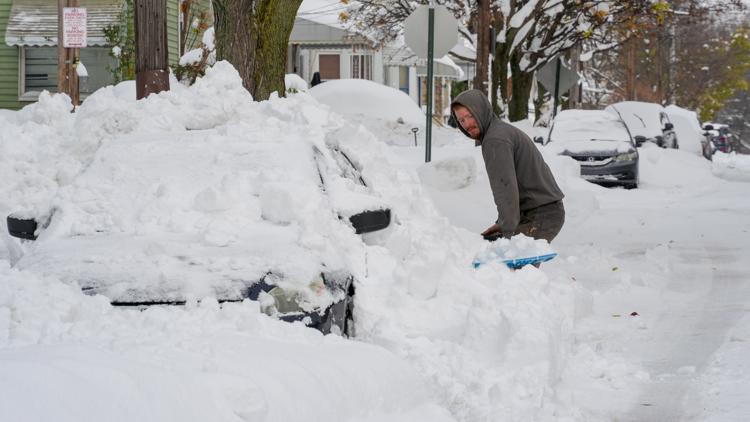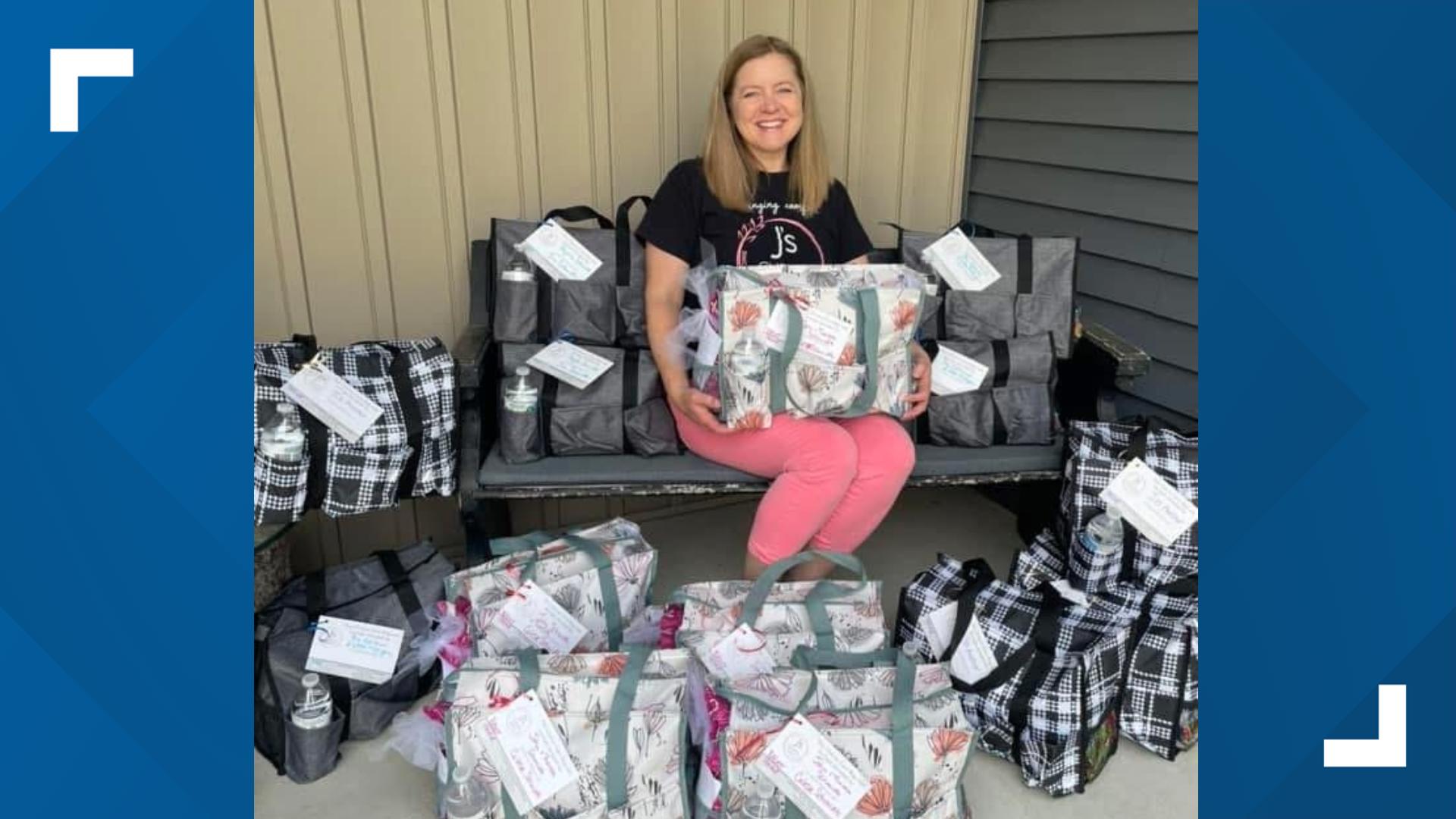GRAND RAPIDS, Mich. — When temperatures drop, it's important to keep health top of mind.
Dr. Andrew Kline is the associate medical director for the emergency department at Corewell Health Butterworth Hospital. This time of year, his department sees frostbite, hypothermia, chest pain and more. However, he said the number one reason people come to the emergency room during the early days of winter is for slip and fall injuries.
"It's that big, unexpected change from where everybody is used to the normal surroundings and good traction, and then that sudden change," said Kline. "We see a lot of upper extremity injuries, where patients will try to catch themselves from their fall. We'll see a lot of injuries to the wrists, elbow injuries. We can see some of the more severe injuries that can occur if people are going down a steep flight of stairs, some of the head and neck injuries and more severe things that can be potentially more life threatening."
Kline reminds people to take small, short steps. A common phrase is "walk like a penguin."
Frostbite is an injury to the skin tissue because of freezing. It typically occurs on fingers, toes, nose, feet and ears.
"Some people would try to tough it out, to keep working, or what have you, or they don't have the ability to get inside," said Kline. "But try to get inside, start warming those digits and extremities to prevent the more serious complications and sometimes limb-threatening injuries that can occur with frostbite injuries."
The stages of frostbite begin with mild frostbite, where skin may feel numb and look red. Then, superficial frostbite will make the skin feel warm and tingly, and red skin turns white or pale. Deep frostbite turns the skin white or bluish gray. Affected areas will lose feeling, and joints and muscles may no longer work.
Both frostbite and hypothermia can happen within minutes in cold temperatures.
To avoid both risks, limit time outdoors in the cold. If you must be outside, wear a hat or headband to cover ears, dress in layers, wear mittens and avoid alcohol or drugs.
If you experience crushing chest pain, for example, when shoveling, go to the emergency room.



